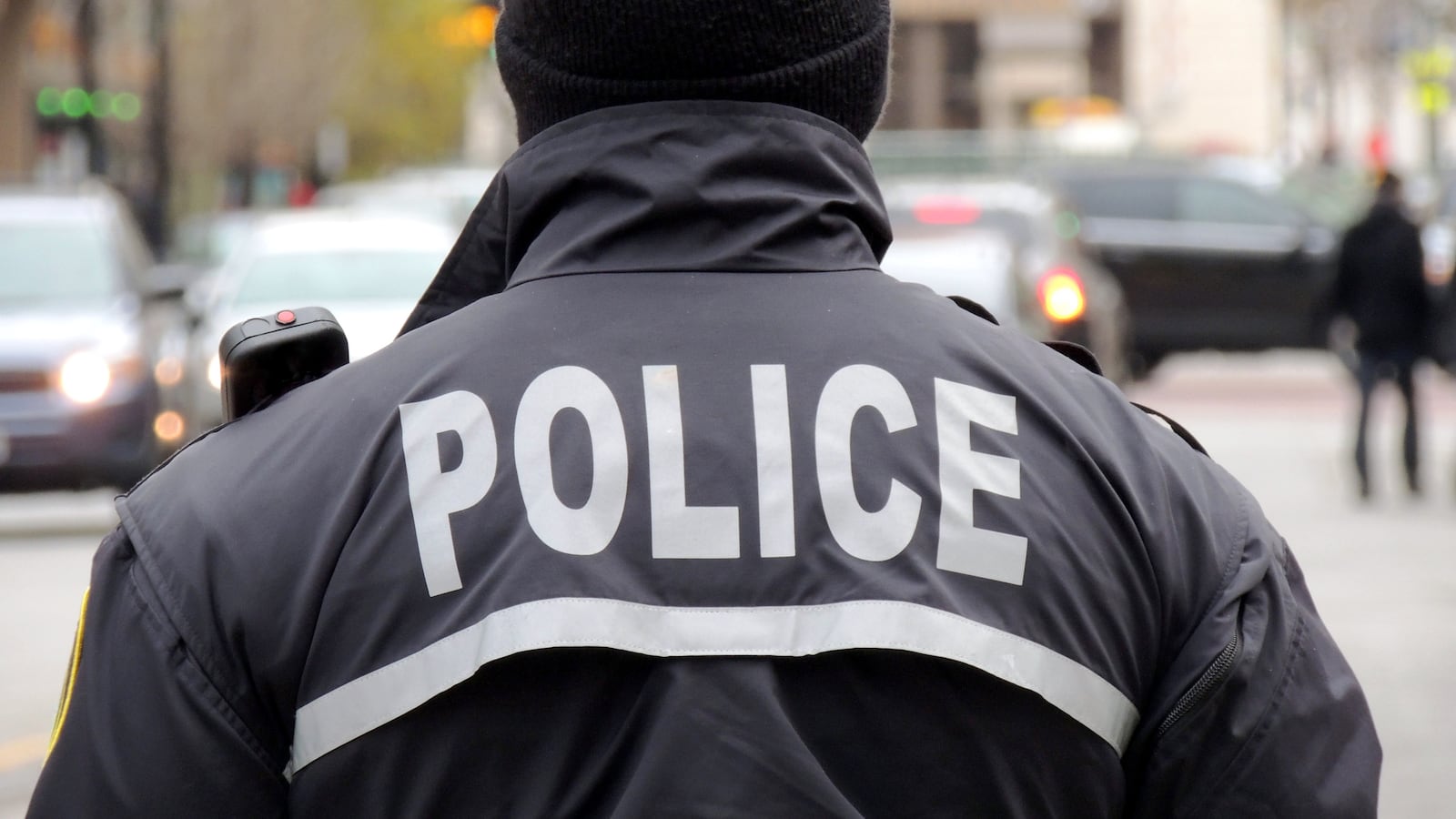The Chicago school board passed a measure Wednesday governing how police operate in schools. It includes $33 million to employ officers.
This first-of-its-kind agreement mandates naming one key point of contact between the district and the police department and giving principals a role in selecting officers. It also orders special youth-specific training for school officers, and it formally lays out their roles and responsibilities. The measure passed, 5-1, with one member abstaining, despite students and community groups calling on the city to remove police officers from schools altogether.
The agreement marks the end of a one-year reform process, spurred by federal oversight of the city’s police department following the alleged cover-up of the fatal 2014 shooting of Chicago teenager Laquan McDonald.
Students from Voices of Youth in Chicago Education, a group that successfully advocated for legislation to limit school suspensions, said they felt silenced during meetings meant to promote community input, and that having officers in schools at all made them feel less safe. Members of the group called for the money that funds police in schools to go instead toward more support staff.
“We are here today because we as a district need to rethink what it means to be safe in schools — we need more social workers and nurses,” said Derion Smith, 18, a senior at Mather High School. Smith called on the board to reject the proposal because he didn’t want police in schools.
Jadine Chou, head of safety and security for the district, spoke ahead of the vote and stressed in a presentation to the board that this would not be the only opportunity for community input on guidelines for how officers operate in schools. She also pointed to a 46% recent drop in students being referred to police across the district since last school year. Chou said that decline reflected efforts to move to a less punitive and more restorative approach to school discipline.
The public input started in the spring with invite-only community input meetings, where advocacy groups complained police leadership didn’t make a good-faith effort to hear community concerns about officers in schools. Police this summer held three public meetings at local parks at which some students criticized attending officers for not being open to differing points of view on school policing.
“The officers were all close-minded,” Derrianna Ford, also a Mather High School student, said at Wednesday’s board meeting.
Earlier this month, the district asked the Local School Councils to vote on whether to keep officers in their schools. Council representatives from a handful of community groups told Chalkbeat that the votes had been rushed. Chou said at Wednesday’s meeting that school councils could reconsider the decision in the coming months.
Chou said she was disappointed to hear in the feedback from young people that they hadn’t felt heard in the guideline-writing process. “We don’t want anyone to feel overruled,” she said.
Other speakers on Wednesday said that having some level of oversight of school policing was better than nothing. Until now, there have been no clear hiring requirements for officers stationed at the city’s public schools, no standard training, and no dedicated way for school leaders to be involved in choosing officers for their schools.
Board members also expressed concern that schools may not have been clearly told that they have the option not to have school officers. Chou said that schools that did not want to have SROs were given information on how other schools dealt with safety and security. But at other meetings, she relayed that schools who chose not to have school officers wouldn’t be able to use that funding for other positions.
Elizabeth Todd-Breland, the sole member of the board of education who voted against the agreement, commended Chou on her efforts to involve community voices, but said she worried that any officer presence in schools would hurt black and brown students.
“Research is overwhelming that having police in schools is the entry point to the school to prison pipeline,” Todd-Breland said.

